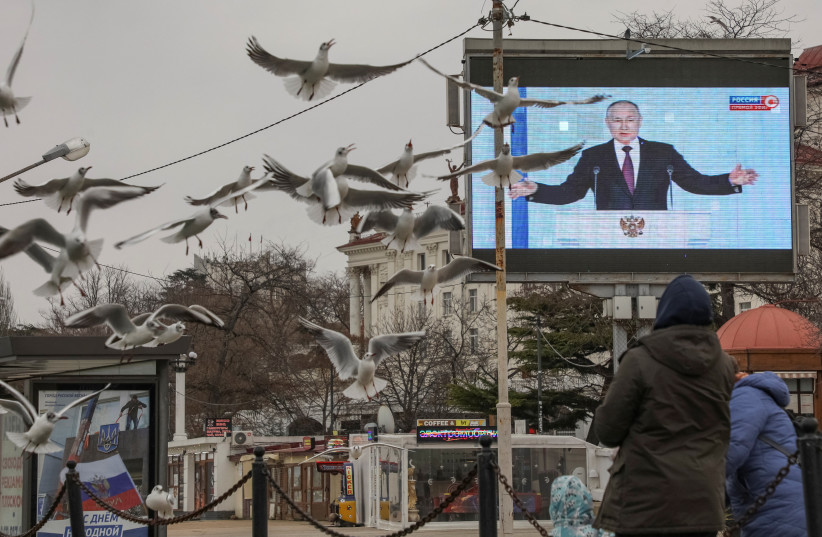Russia or pro-Russian elements are likely behind the leak of several classified US military documents posted on social media that offer a partial, month-old snapshot of the war in Ukraine, three US officials told Reuters on Friday.
The documents appear to have been altered to lower the number of casualties suffered by Russian forces, the US officials said, adding their assessments were informal and separate from an investigation into the leak itself.
The US officials spoke on condition of anonymity given the sensitivity of the matter and declined to discuss the documents in any detail.
The Kremlin and Russia's embassy in Washington did not immediately respond to requests for comment.
The Pentagon has declined to comment on the authenticity of the documents circulating on sites including Twitter and Telegram, which are dated March 1 and bear markings showing them classified as "Secret" and "Top Secret."

A leak of such sensitive documents is highly unusual and would automatically trigger an investigation.
"We are aware of the reports of social media posts and the Department (of Defense) is reviewing the matter," Pentagon spokesperson Sabrina Singh said.
One document posted on social media said 16,000 to 17,500 Russian forces had been killed since Russia's Feb. 24, 2022, invasion of Ukraine.
The United States believes that actual figure is much higher, at around 200,000 Russians killed and wounded, officials say.
The Pentagon's review of the apparent leak was first reported by the New York Times.
Ukrainian forces repelled Russia's initial advance on Kyiv early in 2022, and the conflict, which Moscow calls a "special military operation," has become one of grinding trench warfare in the east and south.
Speculation on the leak
Still, the document leak came as speculation mounts about what offensives Kyiv and Moscow might attempt in the war's second year. The leaked documents did not appear to offer any specific insight into Kyiv's war plans.
A Ukrainian presidential official said on Friday that the leak contained a "very large amount of fictitious information" and looked like a Russian disinformation operation to sow doubts about Ukraine's planned counter-offensive.
"These are just standard elements of operational games by Russian intelligence. And nothing more," Mykhailo Podolyak said in a written statement.
